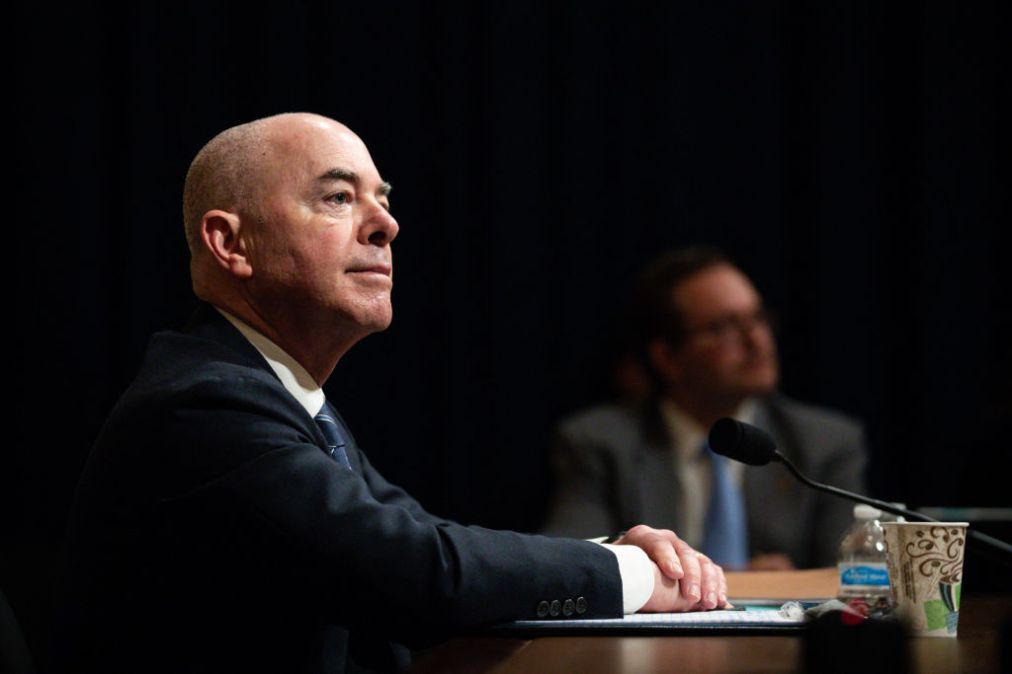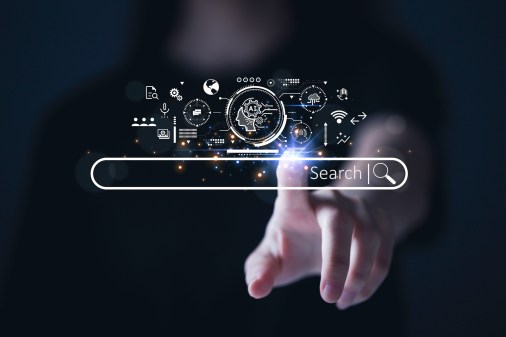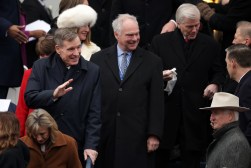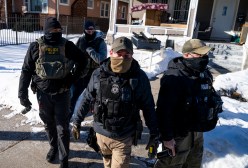DHS secretary hopes Trump admin will preserve agency’s AI board

Homeland Security Secretary Alejandro Mayorkas said Thursday that he hoped the Trump administration would maintain the agency’s AI Safety and Security Board, which was formed in April and includes corporate and civil society leaders focused on artificial intelligence.
The board’s roster currently includes OpenAI CEO Sam Altman, Anthropic CEO Dario Amodei, leading AI researcher Fei-Fei Li, and Office of Science and Technology Policy Director Arati Prabhakar, among many others. DHS and the board on Thursday released what the department is calling a groundbreaking new framework focused on technology and critical infrastructure.
“I am committed to a smooth transition to ensure that the incoming secretary and their team understands the challenges that we face on the homeland and to ensure that the team understands, appreciates and is in a position to advance the capabilities that we have developed and strengthened to address those challenges successfully,” Mayorkas told reporters, referring to the department’s work on AI under the Biden administration.
He added: “The transition team has not landed here at the Department of Homeland Security yet. We are no different than any administration that precedes us in so far as we have a president now and we are executing the policies of this president.”
President-elect Donald Trump has announced that he intends to nominate South Dakota Governor Kristi Noem to lead the agency.
Mayorkas’ comments were focused overall on addressing the new framework for safe and secure artificial intelligence, which was published with the board’s blessing. Mayorkas said he couldn’t speak to the incoming administration’s approach to the board, but said he hoped the group “persists.” Still, he expressed optimism for the future of the framework — and said the guidelines had been already embraced by the board’s members.
The framework is meant to follow in the footsteps of other Biden administration initiatives, including the executive order on AI, the Blueprint for an AI Bill of Rights, and the AI voluntary commitments. The document focuses on risks to critical infrastructure, which include everything from nuclear reactors and IT to dams.
Roles and responsibilities for approaching the rise of AI within critical infrastructure are outlined. It breaks down several categories of actors within the AI space, including cloud and computer infrastructure providers, AI developers, critical infrastructure operators, the public sector, and members of civil society. The hope is to harmonize these sectors around shared principles of safety and security.
“It is the first such product created through extensive collaboration with such a broad, diverse set of stakeholders involved in the development or deployment of AI,” Mayorkas told reporters. “In our nation’s critical infrastructure, it is, quite frankly, exceedingly rare to have leading AI developers engaged directly with civil society on issues that are at the forefront of today’s AI debates.”
The secretary said he’d spoken with individual companies and organizations about their work toward implementing the guidelines. He also expressed hope that they could be harmonized on the international level.






